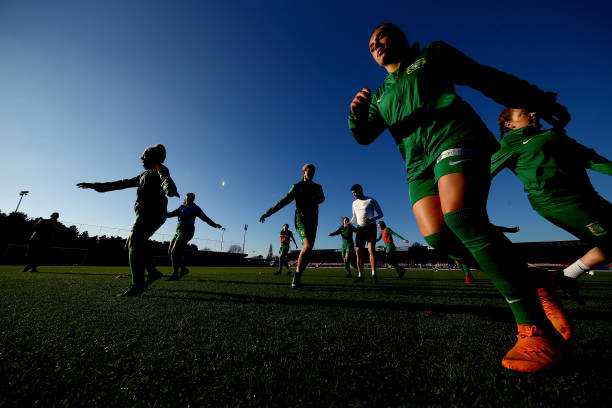The news of Yeovil Town Ladies’ financial worries will come as a surprise to few as it was obvious a forced march to professionalism was going to be a tough road for them.

They are another casualty-waiting-to-happen alongside Sunderland, Doncaster Belles, Sheffield Ladies, Oxford, Watford from last season and Notts County, who folded prior to the Spring Series.
The big question is, as they go back to part-time football, will they be going down to the Championship or to the third tier in the FA WNL?
Yeovil’s financial difficulty clearly shows that a self-sustaining club cannot survive as a professional women’s football team at the moment. You have to give them a lot of credit for giving it a good go, but the fact is the income from clubs is nowhere near the spending level required at the moment.
Sponsorship and gate receipts/attendances need to increase sharply to make a professional team viable without external cash flow. The new deal with Barclays will help with that, even if it does come too late for Yeovil.
It is all, however, nothing new. The Notts County Ladies owner said the same when he folded the team. He was not ready to bankroll a team losing £400,000 per season.
The way I see it, the FA has been trying for a few years to get all FA WSL sides under a single unique business model – women’s teams backed by rich men’s clubs.
Some fans go as far as saying the FA wants the FA WSL to be a mirror of the men’s Premier League.
On the business side, it makes sense.
For example, with Spurs and United likely to come up at the end of the season, the FA WSL would have 12 teams backed up by their men’s side: Arsenal, Man City, Chelsea, Reading, Birmingham, West Ham, Brighton, Bristol, Liverpool, Everton, Tottenham, and Man United.
In marketing terms, having the Premier League to take over the FA WSL and renaming it the Women’s Premier League would make perfect sense. It’s funny to note that the FA Women’s Premier League name, the top tier League for women’s football in the last 20 years until the FA WSL was created, disappeared last year as the competition from the third tier and below was renamed FA Women’s National League
It is certainly sad to see the Glovers part with their non-footballing staff before the season ends as they are all good people who worked hard behind the scenes. The same can be said of Stephen Allison and the previous chairman before him.
They also gave chances to young players to live a professional life, like the former Arsenal youth player Amber Gaylor, who was playing semi-professional football in FA WSL 2 with London Bees and Millwall.
On the pitch, Yeovil are currently bottom of the league and fighting to avoid relegation. I don’t think anyone would complain if they are relegated fair and square after giving their all over the whole season.
But should they avoid the drop on the pitch and then end up being demoted due to financial reasons, like so many teams last season, it will leave another bitter taste in the mouths of fans.
We all knew when the FA WSL was introduced back in 2011 that it was the end of on-pitch performances deciding promotion and relegation with sporting merit a thing of the past.
The exception is the top two places qualifying for the Champions League and even there the FA famously tried to get the FA Cup winners a place in the Champions League the year after getting a one-off exception.
But it is really sad that in the name of the Lionesses performances, the FA WSL has become a money, money, money league.
Let’s be clear, the investments made by the FA on and off the pitch are bearing fruit as seen with two consecutive semi-finals in international tournaments (World Cup and Euros), but it is a shame that it leaves clubs as casualties on the side of the road to their success.

